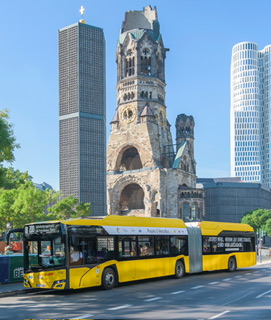
According to the new Regulation (EU) 2023/1542 of the European Parliament and of the Council of 12 July 2023 concerning batteries and waste batteries, a digital battery passport will be required from 18 February 2027, for each battery, including those in electric vehicles.
A battery passport is a digital document that provides detailed information about a battery: its composition, origin of materials, environmental impact and data necessary for proper recycling. Required data includes information on the chemical composition, critical raw material content, carbon footprint, and share of renewable materials. Information on the battery in the Urbino 18 electric buses operated by BVG Berlin is available by scanning the QR code taped to the component.
The document aims to increase transparency throughout the battery lifecycle—from raw material extraction and use to recycling. Electric vehicle batteries contain valuable and rare materials, and their responsible management is crucial for preserving natural resources and minimizing environmental impact. The battery passport enables the tracking of raw materials such as lithium, cobalt, and nickel, promoting responsible and ethical sourcing. Access to detailed data on composition and environmental impact also supports efficient recycling and optimal use of renewable materials.
Solaris ranks first in terms of the total number of European zero-emission buses—battery and hydrogen—delivered since 2012. Solaris buses equipped with batteries include not only electric buses, but also hydrogen vehicles and trolleybuses.
To date, Solaris has delivered more than 5,000 zero-emission vehicles, with orders continuing to grow.